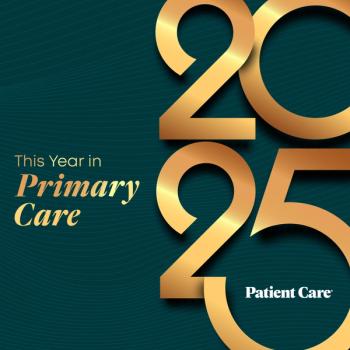
Your daily dose of the clinical news you may have missed.

Editor of Patient Care Online.

Your daily dose of the clinical news you may have missed.

The AHA and ACC commend the focus on fruits, vegetables, and whole grains but caution against high-fat dairy and protein emphasis.

Your daily dose of the clinical news you may have missed.

New data from the DROP-AD study suggests that dried blood spots could revolutionize screening approaches for clinical trials.

Your daily dose of the clinical news you may have missed.

COVID-19 vaccination before infection significantly reduces hospitalization, critical care admissions, and preterm birth rates in pregnant individuals, study finds.

Your daily dose of the clinical news you may have missed.

FDA prioritizes review of Tzield for young children with stage 2 type 1 diabetes, potentially delaying disease onset and improving patient outcomes.

Your daily dose of the clinical news you may have missed.

The FDA has accepted a supplemental NDA for AXS-05 for agitation associated with Alzheimer disease and granted Priority Review, with a PDUFA action date of April 30, 2026.

Stay informed with the latest critical updates, including new guidelines, vaccine insights, and groundbreaking research findings from 2025.

The FDA approved once-daily oral semaglutide 25 mg for chronic weight management and long-term weight maintenance in adults with obesity or overweight, based on data from the OASIS clinical trial program.

Abbott's Volt PFA System gains FDA approval, offering a new minimally invasive treatment for atrial fibrillation, enhancing patient care options.

Topline Phase 3 ATTAIN-MAINTAIN data show oral orforglipron met primary and key secondary endpoints for weight maintenance after prior GLP-1–based injectable therapy in adults with obesity.

Real-world patient cases illustrating how pill burden, privacy, and individual preferences influence PrEP selection and adherence.

Your daily dose of the clinical news you may have missed.

Your daily dose of the clinical news you may have missed.

Primary care physician Kevin Hatfield, MD, discusses how the switch can increase patient touchpoints, free cognitive burden, and strengthen long-term engagement between patients and PCPs.

Zasocitinib showed significant efficacy in treating moderate-to-severe plaque psoriasis, outperforming placebo and apremilast in pivotal phase 3 trials.

Your daily dose of the clinical news you may have missed.

The VITESSE trial met its primary endpoint, with the VIASKIN Peanut patch improving desensitization versus placebo in peanut-allergic children aged 4 to 7 years.

Phase 2b REZOLVE-AA trial results show rezpegaldesleukin reduced SALT scores versus placebo in severe alopecia areata, supporting Phase 3 development.

Gilead's ARTISTRY-2 trial shows a promising single-tablet HIV treatment regimen is noninferior to standard therapy, expanding options for virologically suppressed adults.

Your daily dose of the clinical news you may have missed.


Dupilumab shows superior 2-year drug survival rates in atopic dermatitis compared to other biologics and JAK inhibitors, highlighting its effectiveness in treatment persistence.

Your daily dose of the clinical news you may have missed.

Your daily dose of the clinical news you may have missed.

Gepotidacin becomes the first new oral antibiotic for gonorrhea in over 30 years, offering hope for effective treatment options.

Two global phase 3 trials found rocatinlimab significantly improved EASI-75 and vIGA-AD outcomes at 24 weeks in people with moderate-to-severe AD with acceptable safety.